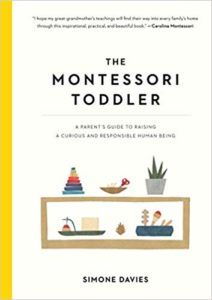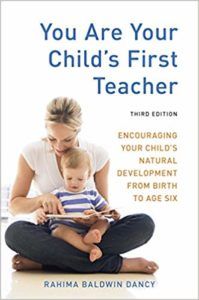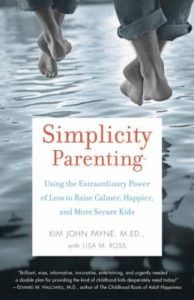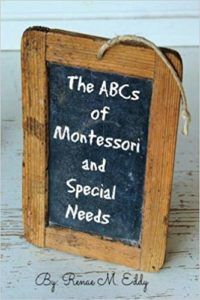Parents have to find their own way in parenting. Books can be helpful guides, but what works for one child or parent might not work for another. And you don’t know any of this until you’re in the thick of it. When my son was little, I started reading about Montessori and Waldorf education and parenting theories. I really, really liked them and found them to be the calming, minimalist approaches that were best for my son. The emphasis – especially in Waldorf theories – on play and holistic development helped take the pressure off both of us and wasn’t just the achievement-based rubric that seems to be so prevalent in today’s parenting culture. I started reading books, visited various websites, and joined Montessori and Waldorf groups on Facebook. Something that struck me – and is evident in the book list I’ll share – was the lack of diversity. Not so much in the Facebook groups, but in the books and popular websites about the approaches. Authors of color are sorely missing. This is a really interesting article about the Montessori schools that get attention and the ones that don’t, and of course it all depends on whether you’re talking about public or private Montessori and Waldorf schools. (And all of this could be a dissertation in itself, examining disparities in education as a whole, disparities in parenting support and guidance, and much, much more). Despite all the talk that these schools are becoming more diverse, there’s a big problem when it’s hard to find books on these topics by authors of color. Another issue in Montessori and Waldorf approaches – including books, Facebook groups, and schools – is the lack of diversity in ability. Yes, there are separate Facebook groups for things like Montessori for Children with Special Needs, but if you dare bring up some adaptive toys for children in a “regular” group, I’ve seen people attack the person for not being “strictly” Montessori. There are some self-published books on Montessori for different needs (one of which I’m including here), but most books don’t even acknowledge children who may need some modifications. Don’t get me started on our experience with the local Montessori school and their lack of responsiveness to my son’s different needs – which I think Maria Montessori would have found highly disappointing. All this to say: no parenting approach is perfect, IMO. Including Montessori and Waldorf. There are many things that can be improved upon, but the good news is that we can do it. Anyone can adopt the parenting approach that works for them and make it their own, provide representation, and speak up about it. We can demand that the mainstream organizations for each approach do better. We can encourage our children’s schools to do better. We have to. Here are some of my favorite Waldorf/Montessori books. I think if you’re just starting out exploring these approaches, Simplicity Parenting might be a good place to start, followed by You Are Your Child’s First Teacher.
The Montessori Toddler by Simone Davies (March 2019)
I am LOVING this so far. Toddlers are tough. As much as I’d like to be a Zen mama with endless stores of patience, I am decidedly not. This is a book that makes me want to be better, without shaming me. Davies doesn’t say you need to buy ALL the Montessori toys; rather, she encourages you to work with what you have, and take tiny steps. This is a down-to-earth, accessible book that makes Montessori at home doable. She provides clear ideas for discipline and parenting, and it’s written in a friendly, parent-to-parent way. I’m really enjoying it and it’s already underlined a ton and full of post-it notes.
You Are Your Child’s First Teacher (3rd edition): Encouraging Your Child’s Natural Development From Birth to Six by Rahima Dancy Baldwin
This is often one of the first books people recommend on Waldorf parenting, and when I read it, I knew why. Easy to understand, with a ton of practical advice and resources, it’s a reassuring book to read and makes Waldorf parenting very doable. She takes on everything from cultural issues, lack of support for moms, early parenting, newborns, toddlers, language development, and a ton more.
Simplicity Parenting: Using the Extraordinary Power of Less to Raise Calmer, Happier, and More Secure Kids by Kim John Payne and Lisa M Ross
I recommend this to all parents and parents-to-be, regardless of whether they are interested in Waldorf/Montessori approaches. I think it’s wonderful for all parents – and everyone, really. There is so much STUFF that is marketed to parents and expectant parents, and it can turn into a disservice. This book is all about streamlining the home environment, encouraging routines and open-ended play, and finding balance. Parenting feels like it’s gotten so complicated, and it can be overwhelming. This book shows you how you can make it less so.
The ABCs of Montessori and Special Needs by Renae M Eddy
This is self-published, and as I mentioned earlier, it speaks volumes when there are no mainstream books on Montessori/Waldorf and children with different needs, and no acknowledgement of children who may not be at the typical developmental levels. This book was very helpful when I was exploring Montessori for my son, and showed me why and how Montessori could work for him, and how to make it our own.



